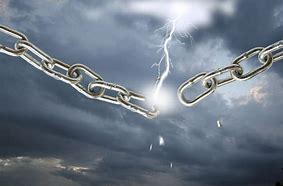This past Sunday we started our sermon series on “Your Calling.” Over the next 8 weeks, we’ll look at who we are called to be and what we are called to do. One topic that will not make our series, but is an important one to consider is that of freedom. Perhaps the most important verses of the Bible is in Genesis 2:16-17: “And the Lord God commanded the man, saying, ‘From any tree of the garden you may eat freely; but from the tree of the knowledge of good and evil you shall not eat, for in the day that you eat from it you shall surely die.'” Why are these verses so important? They are important because they convey a critical, although upspoken, theological idea: the concept of freedom. God could have created Adam and Eve, put them in the Garden of Eden, and never created the tree of the knowledge of good and evil. He could have never spoken one word about it to them, and they would have lived in blissful ignorance that their capacity for knowing good and evil was capped. Yet God did not do that. He gave humanity freedom: freedom to choose to obey him or disobey him; freedom to eat from the fruit or not; freedom to decide if they wanted to live by God’s rules or not.
The decision by God to give humanity the freedom to choose is perhaps the most important one because it speaks about his desire to have a relationship with us. This can only come from the love of God. We have all experienced relationships; what makes each relationship special to us is that we are able to choose to be in that relationship. This is true whether we are talking about marriage, friendships, business partners, or other social contacts (family, however can be a different story!). The ability to make a choice about who we choose to be in relationship with helps determine the extent to which we find that relationship meaningful and fulfilling. Now let’s think about it from God’s viewpoint. He gave humanity freedom because he wanted to be in relationship with us; as I’m sure you will agree, you can’t truly be satisfied with a relationship if you’re forced into it-at that point you simply endure it until tis over. So what this means for us is that our relationship with in some sense fulfills God. Now, let me be clear that I’m not saying that we have something that God needs or lacks; God is all-sufficient in himself and does not need us to make him complete. But I think there it says something about God’s nature that he gave humanity the freedom to choose him or not. Ultimately, I think it reflects his love. Love, in its truest and best form, is selfless and other-oriented (1 John 4:7-8). It seeks the good of the other person and disregards one’s own good. True love is that which allows the other person to shine above ourselves. That is what God desires for us; he wants us to shine as lights in his universe. He wants us to light up the sky with his love and show the universe what it means to reflect the image of God. Just as Paul reminded the Galatian church that “it was for freedom that Christ set us free” (5:1) as they struggled with the legalism of the Jewish law, let me remind you to live out your freedom by choosing to be in a loving, self-giving relationship with God. God has called us, and is calling us, to live in freedom: freedom from darkness, freedom from death, and freedom from sin. With the help of the Holy Spirit, we can see great things done in our lives.


Amen. Free to seek righteousness and follow Christ in His love.
Profound thinking!!! Dad